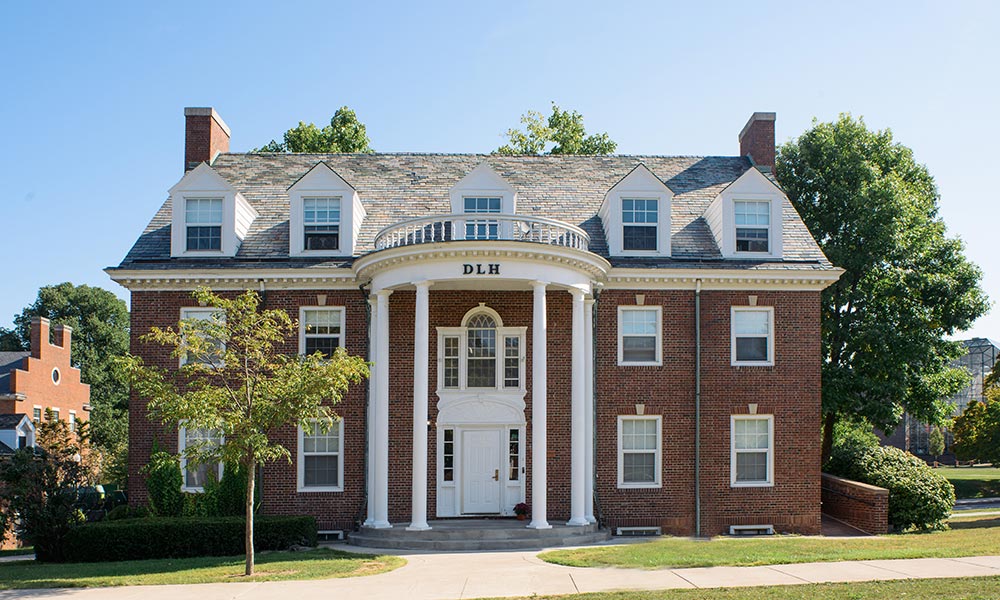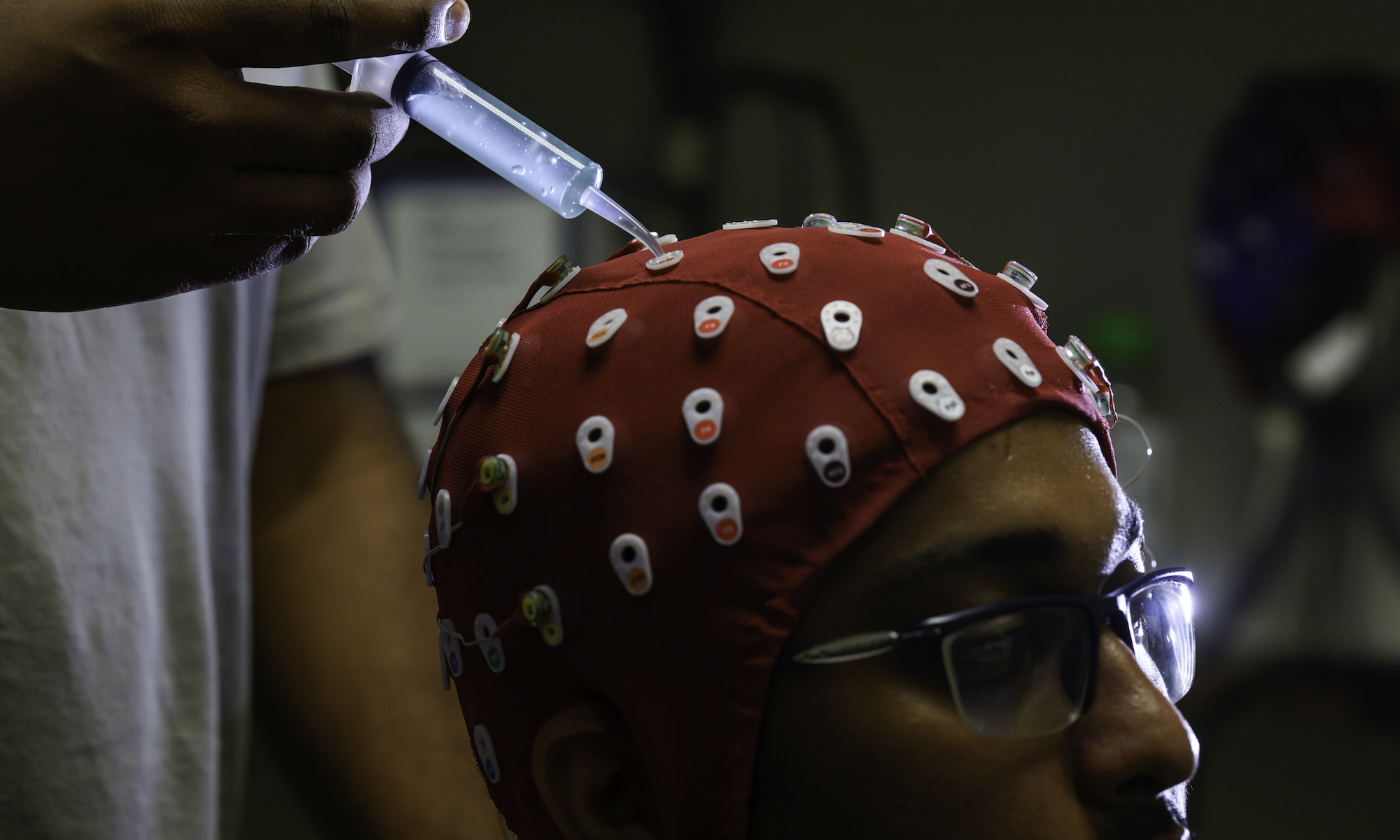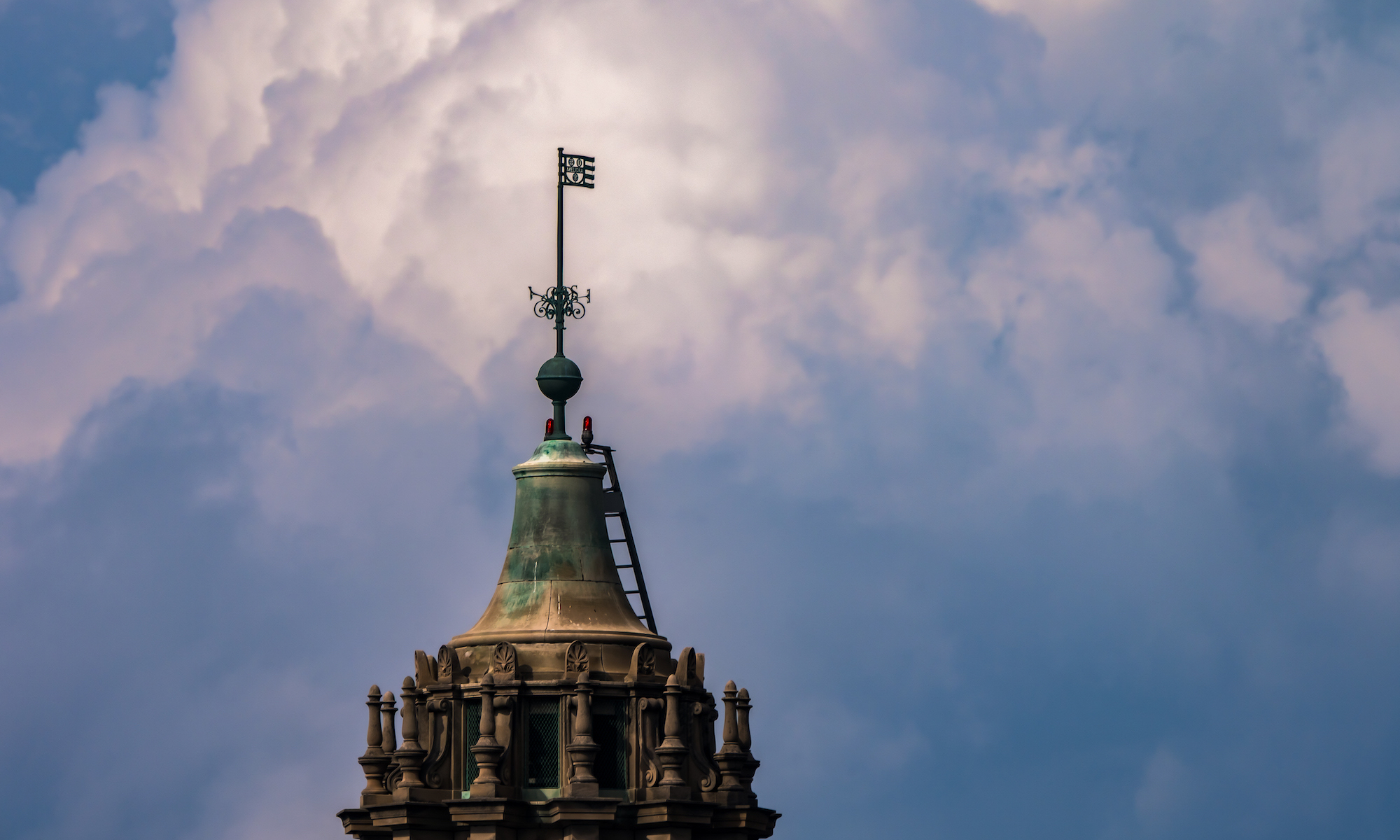The house will become a “living-learning community” with an umbrella of support across the College and institution-wide units, including the Frederick Douglass Institute.
Operational changes and physical improvements are coming to the University of Rochester’s Douglass Leadership House.
The house, located on the Fraternity Quad of the River Campus, soon will be under an umbrella of support consisting of the College, the Office of Minority Student Affairs, the Frederick Douglass Institute for African and African-American Studies, Residential Life and Housing Services, and the Office of Equity and Inclusion.
Jeffrey Runner, dean of the College, says these formalized partnerships will provide a stronger, more effective infrastructure for the house and its program.
Staff members from the network of departments will work with DLH students and support activities involving DLH.
Douglass Leadership House was established in 2012 by a group of undergraduate students as a physical expression of the principles set forth by Douglass, a 19th-century African American social reformer and abolitionist who made Rochester his home for a quarter century. The house’s mission is to establish an engaging intellectual community where students of all cultural backgrounds live together and raise awareness of the Black experience, including culture, politics, history, and diasporic roots.
The house is currently solely under the jurisdiction of Residential Life, which has made it vulnerable to a shutdown under a goal-setting process set up for fraternity houses and an occupancy requirement.
“That has always been seen as an existential threat to DLH,” Runner says. “There’s a system of points that fraternity houses can accrue for failing to meet certain goals (like filling the house), but those standards were not set up to support DLH. Our goal is to turn DLH into a living-learning community that’s more social and academic. The students living in the house will have an explicit connection to an academic unit—the Frederick Douglass Institute—as both an intellectual partner and a resource for mentoring activities.”
Runner says all other houses on Fraternity Quad will continue to follow current regulations. He says the DLH changes, expected to be implemented this summer, are years in the making.
“When we had the student protests in 2015 that led to the Presidential Commission on Race and Diversity, one of the demands was for DLH to be permanent and not subject to the rules of the fraternity houses,” he says. “DLH students have done a lot of work to get where we are. We’re creating a new construct that we don’t have on campus—a living-learning community.”
DLH president Andre Hodges ’22, a digital media studies major from Washington, DC, says he’s “elated” by the changes. “As people of color, we don’t always have the resources to operate like other houses, and we won’t always be able to fill the house,” he says. “So many past Douglass leaders fought to uphold this place, so it helps to know some past policies that threatened our existence will be eliminated, and that we have strong support from the administration.”
Runner also sees Douglass Leadership House as a potential recruiting tool for underrepresented students. Only second semester first years, sophomores, juniors, and seniors are currently allowed to live at the house, which has a capacity for 21, but Runner thinks residency should be expanded to include four to six in-coming first-year students. “We want the students living there to have a lot of autonomy, and we’re thinking of ways for current members to be able to interact with incoming students.”
There also will be interior renovations, specifically to the house’s main living room and recreational space in the basement. The house has hosted the keynote speaker for the annual Martin Luther King Jr. Commemorative address, Rochester Mayor Lovely Warren, and several academic scholars and community activists, and hopes to bring in future guests.
Greg Meyer, senior operations officer in Arts, Sciences and Engineering, is heading a team of administrators and students who have identified a list of needs and engaged an interior designer and furniture vendor to enhance the space.
Runner hopes to assure students that Douglass Leadership House isn’t going anywhere. “We want this house to be permanent,” he says. “To be here forever.”
Read more
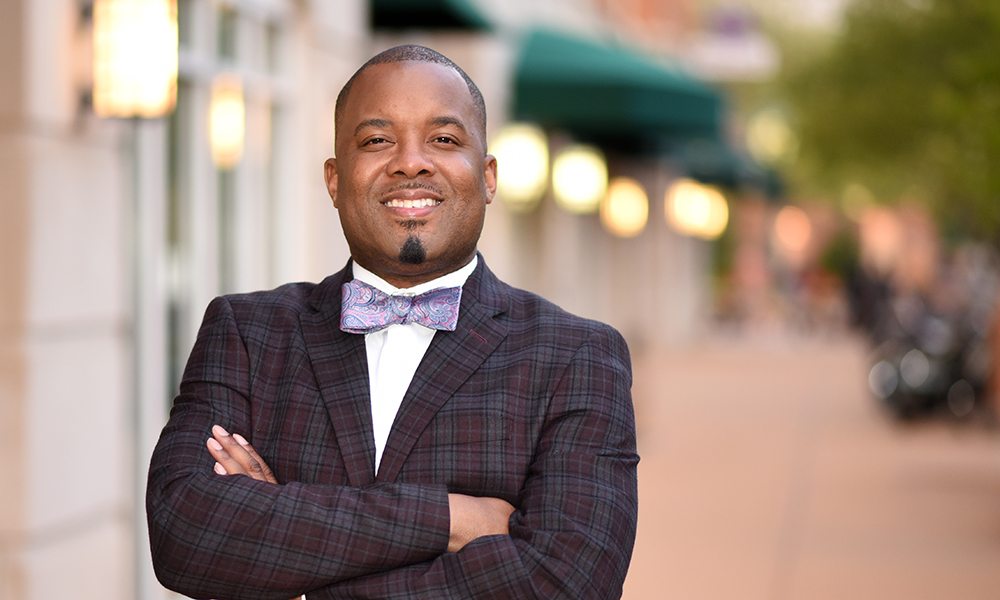 Jeffrey McCune named Frederick Douglass Institute director
Jeffrey McCune named Frederick Douglass Institute directorScholar will bring together people from across academic disciplines to collaborate in the study of the African diaspora and offer programming that promotes African and African American studies.
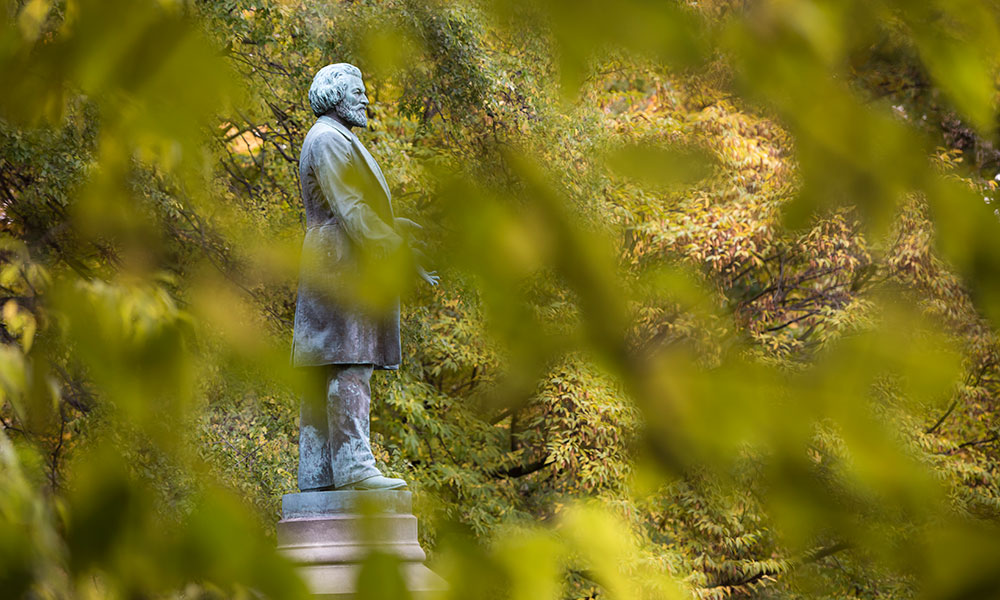
Rochester’s Black community had a deep—and underrecognized—influence on Frederick Douglass
Douglass was profoundly influenced by the Rochester region. But the region’s role in shaping the abolitionist leader has not been fully appreciated, according to a Rochester history professor.


